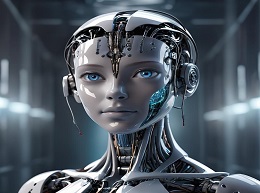AI and Human Augmentation: Enhancing Human Abilities

Artificial Intelligence (AI) is not only revolutionizing industries and transforming the way we live and work but also holds the potential to augment and enhance human abilities in unprecedented ways. From prosthetics to cognitive enhancement, the integration of AI with human augmentation technologies is ushering in a new era of human potential and empowerment.
Prosthetics and Mobility Assistance
Advancements in AI have led to remarkable improvements in prosthetic limbs and mobility assistance devices, enhancing the quality of life for individuals with disabilities. AI-powered prosthetics can adapt to users' movements, providing more natural and intuitive control over artificial limbs.
Example: Bionic Prosthetic Limbs
Bionic prosthetic limbs equipped with AI algorithms can interpret electrical signals from users' muscles and nerves, enabling precise and coordinated movements. This technology restores mobility and functionality to individuals with limb loss, empowering them to engage in daily activities with greater independence and confidence.
Cognitive Enhancement and Brain-Computer Interfaces (BCIs)
AI-driven brain-computer interfaces (BCIs) offer new possibilities for cognitive enhancement and communication for individuals with neurological disorders. These interfaces enable direct communication between the brain and external devices, unlocking new avenues for controlling technology using brain signals.
Example: Neuralink
Neuralink, founded by Elon Musk, is developing BCIs that aim to enhance cognitive capabilities by directly interfacing with the brain. These devices have the potential to treat neurological conditions, restore lost sensory functions, and enable seamless interaction with AI-powered technologies.
Personalized Healthcare and Medical Diagnosis
AI algorithms analyze vast amounts of medical data to provide personalized healthcare solutions and improve medical diagnosis and treatment outcomes. By leveraging AI, healthcare providers can develop tailored treatment plans and predictive models to anticipate and prevent diseases.
Example: IBM Watson for Oncology
IBM Watson for Oncology uses AI to analyze patient data, medical records, and research literature to assist oncologists in developing personalized treatment plans for cancer patients. This AI-powered tool enhances clinical decision-making, improves treatment accuracy, and ultimately, leads to better patient outcomes.
Augmented Intelligence in Education and Learning
AI-driven educational technologies offer personalized learning experiences and adaptive tutoring systems that cater to individual student needs. By analyzing students' learning patterns and preferences, AI algorithms can tailor educational content and provide real-time feedback, enhancing learning outcomes.
Example: Duolingo
Duolingo, a language learning platform, uses AI algorithms to adapt lessons and exercises based on users' proficiency levels and learning progress. This personalized approach to language learning improves retention and mastery of language skills, making learning more effective and engaging.
Ethical Considerations and Challenges
While AI-driven human augmentation technologies offer tremendous potential, they also raise ethical considerations and challenges. Questions surrounding data privacy, consent, equity, and the potential for misuse of augmented capabilities must be addressed to ensure responsible development and deployment of these technologies.
Conclusion: Embracing Human Potential with AI
The integration of AI with human augmentation technologies represents a paradigm shift in how we perceive and enhance human abilities. By leveraging AI to augment physical, cognitive, and sensory capabilities, we can empower individuals to overcome limitations, achieve greater independence, and unlock new realms of human potential.
In conclusion, the synergy between AI and human augmentation technologies heralds a future where human capabilities are enhanced, extended, and enriched in ways previously unimaginable. By embracing ethical principles, fostering innovation, and prioritizing the well-being and empowerment of individuals, we can harness the transformative power of AI to enhance human abilities and shape a more inclusive and empowered society.